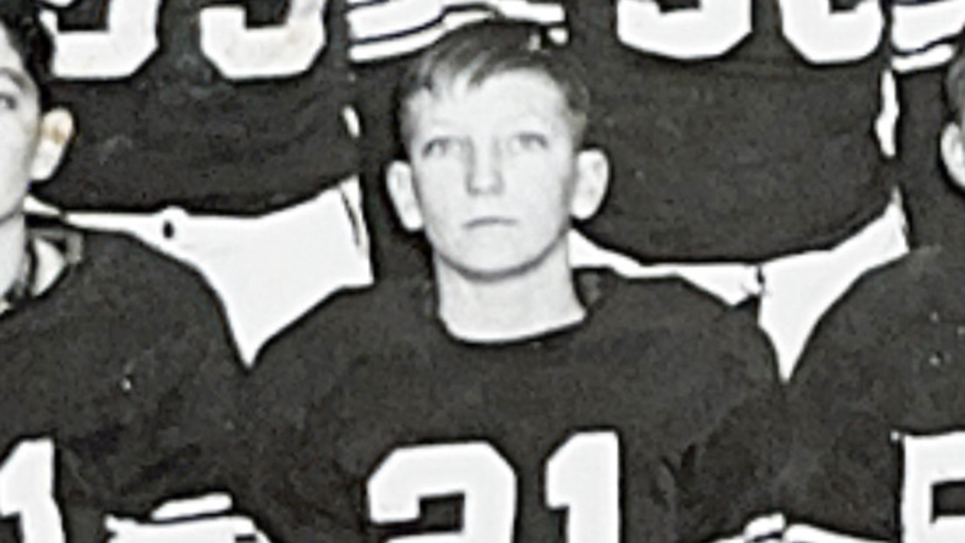Black’s parents signed him up to play at C-N
By Steve Williams
On Carson-Newman’s 1963 football roster, Bobby Black, senior co-captain, was listed as a 6-3, 200-pound center. Back then, 60 years ago, that was considered pretty good size for a college lineman.
Over the years, Coach Black – thanks to his wife Brenda’s great cooking – filled out and became about as big as the offensive linemen he worked with at Fulton High.
Sure he could growl on the sideline with the maddest of them, but seeing Bob in different roles over parts of five decades and how he carried himself, I expect the vast majority of Fulton’s students looked at him as a Gentle Giant with a caring heart.
Black, after a battle with Alzheimer’s, died Aug. 14. As expected, a large turnout came to pay their respects to a man who had been a teacher and coach for over 50 years. Many of them called him “Popaw.”
When I met him in his football office to tape an interview five years ago, the first 10 minutes was on Black being selected the East Tennessee Careacter Star Assistant Football Coach of the Year for 2017. The last 20 minutes included a mixed bag of Bob’s career and makes up a lot of this Part 2 column. When I left his office that day, I knew that was an interview I had to save.
Bob got his first taste of football in the Baby Falcons’ program.
After Black’s first season (1960) in high school, Coach Ralph Hutchens took over the Fulton program. “He’s the one who influenced me and I probably would never have gone to college if it hadn’t been for him pushing me,” said Black.
When Bob played in the City-County All-Star game his senior season, Hutchens brought Carson-Newman Head Coach Ray Harmon into the locker room. Harmon had been at practice every day that week to watch the City All-Star team.
When Black got home after his summer job the next week, there were two cars parked in front of his house.
“I went in and it was Coach Hutchens and Coach Harmon, and my parents (George and Ruth Black) had already signed me up to go to Carson-Newman,” said Bob. “It was the greatest thing that ever happened for me – to go there, play there, learn there and be part of that Christian program.”
Black earned All-America honors playing for the Eagles in 1963.
Thanks to Bob Davis, who became head coach at C-N when Harmon retired, Black coached one year as an assistant under him.
“As soon as I graduated at Carson-Newman,” recalled Black, “Bob Fry (Fulton AD) called me and said ‘Coach, we need you to come back and teach and coach at Fulton,’ and I said, I’m on my way.”
His first season at FHS had an odd start.
After having always been a center and linebacker in high school and college, Bob was the receiver coach. That lasted one year. “I had to get out of that,” he laughed.
Black coached at Fulton for 56 years but only two seasons (1969 and ’70) as the head coach. He didn’t like being a head coach and preferred working with an individual group. He ended up working mostly with the O-line and being a defensive coordinator.
He also said he had too many other things going on to be a head coach. He was umpiring, working with Maynard Glenn in recreation, was on a chain crew at UT and had been running the Alice Bell swimming pool since 1971.
“I didn’t have time to be a head coach, to be honest,” he said.
Fry spent 19 years (1958-1977) as the Athletic Director and head basketball coach at Fulton and passed the AD position on to Black. “He trained me for that position because he felt sure I was going to be his heir apparent,” said Bob, who held that role for over 30 years before giving it to Jody Wright.
In a column I wrote in March, 2022 about Wright having a chance at being the state’s winningest basketball coach in the future, Jody said his dad, the late Gene Wright, and Bob Black had influenced his coaching career the most.
“I’m the competitor I am today because of my dad,” said Jody.
“Bob Black hired me at Fulton when I was 23 and mentored me and taught me so much,” added Wright. “He stuck with me when times were lean and we were struggling to win those first three years.”
(There’s still a few more minutes on the tape, so we’ll have a Part 3 column on the life of Bob Black in The Focus’ Sept. 5 issue.)







